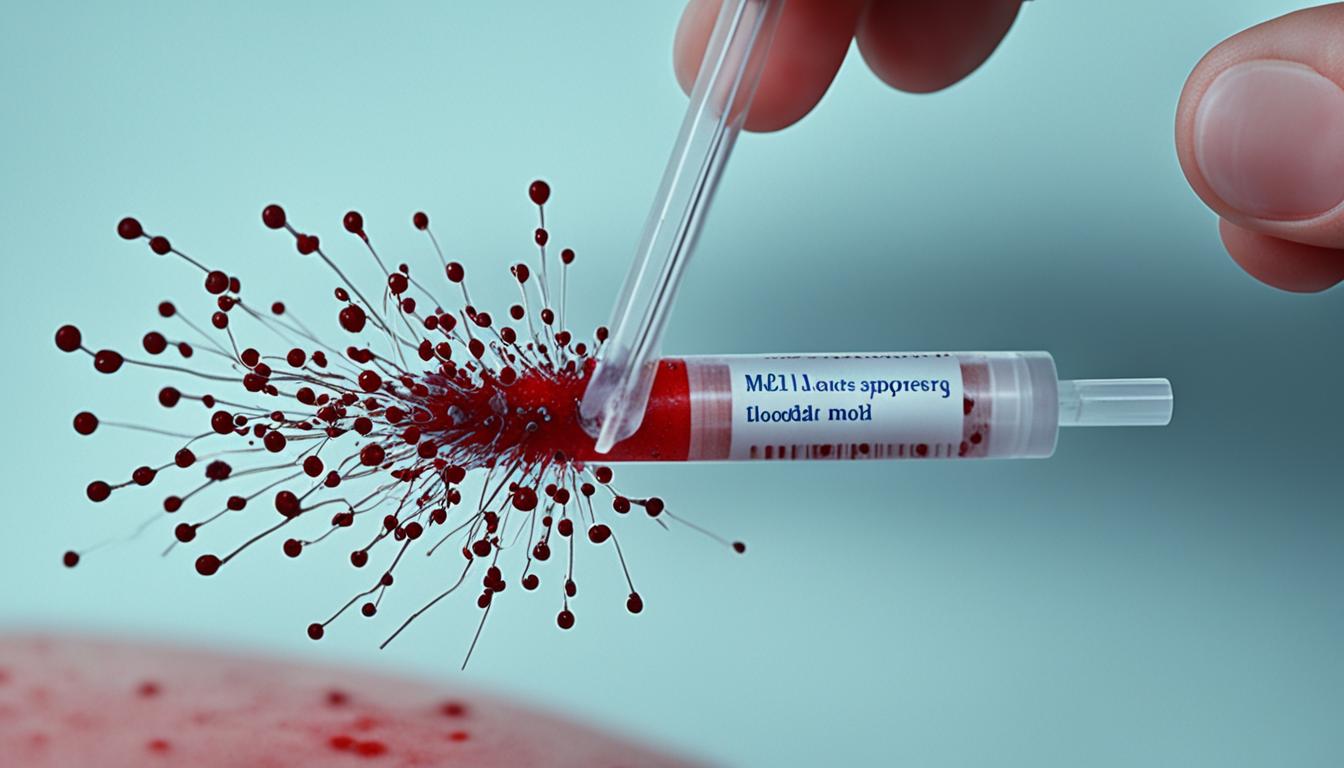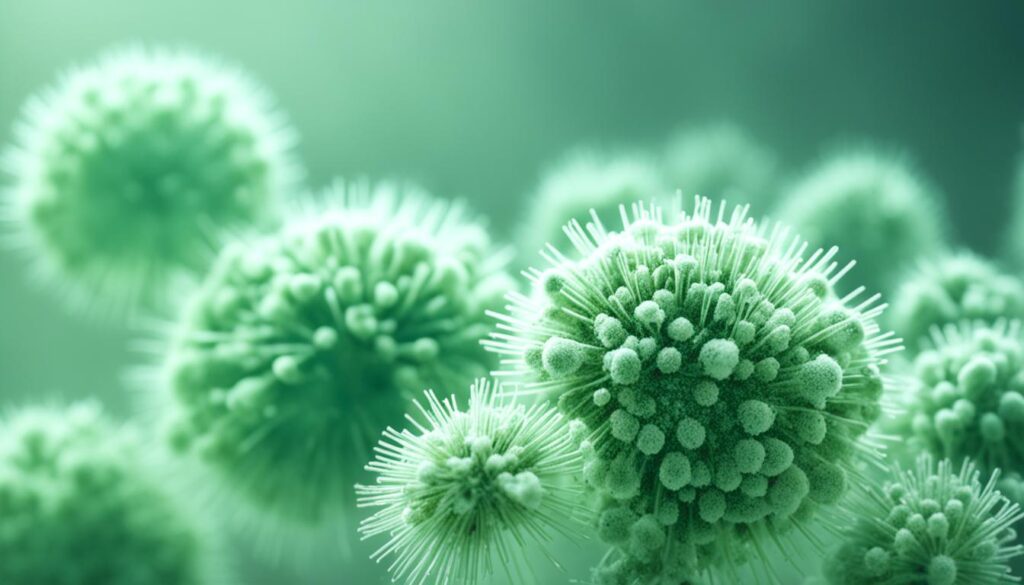
Unlocking the Mystery of Mold blood test: What You Need to Know
In this section, we will delve into the importance and role of mold blood tests in detecting mold exposure and understanding the potential health implications. Mold exposure can have serious consequences for our health, and being able to accurately diagnose and address it is crucial. Mold blood tests serve as valuable diagnostic tools, providing insights into whether an individual has been exposed to mold and helping healthcare professionals assess the potential health risks.
When it comes to mold exposure, it’s important to understand that it can impact individuals differently. Some people may experience respiratory problems, such as coughing or wheezing, while others may develop allergies or more severe health conditions, especially if they have a weakened immune system. By identifying mold exposure through blood tests, healthcare professionals can better understand the connection between mold exposure and specific health issues, enabling them to devise appropriate treatment plans.
By understanding how mold blood tests work and their significance in diagnosing mold exposure, individuals can make informed decisions about their health and safety. The results of these tests can guide you in taking proactive measures to prevent or mitigate the effects of mold in your environment. Let’s explore in detail the significance of mold blood tests and the implications of mold exposure on our health.
Key Takeaways:
- Mold blood tests help detect mold exposure and assess potential health risks.
- Mold exposure can lead to respiratory problems, allergies, and more severe health conditions.
- Understanding the implications of mold exposure can guide individuals in taking proactive measures to address mold-related health issues.
- Mold blood tests should be used in conjunction with other symptoms and tests for accurate diagnosis.
- If you suspect mold in your environment, it’s advisable to contact a reputable service provider for a mold assessment.
The Significance of Mold Blood Tests
Mold blood tests play a crucial role in detecting mold exposure in individuals. These tests measure the presence of specific mold-related antibodies in the blood, indicating whether a person has been exposed to mold. By identifying the presence of mold-related antibodies, healthcare professionals can better diagnose and treat potential mold-related health issues.
However, it’s important to note that mold blood tests should not be the sole diagnostic tool and should be used in conjunction with other symptoms and tests. Other factors such as clinical examination, medical history, and environmental assessments should also be taken into consideration to fully assess the risk of mold exposure and its health implications.
Mold Blood Test Procedure
The process of conducting a mold blood test involves collecting a blood sample from the individual. The sample is then analyzed in a laboratory to identify the presence of mold-related antibodies. The detection of these antibodies suggests that the person has been exposed to mold and may help determine the type of mold to which they have been exposed.
“Mold blood tests provide valuable information for both patients and healthcare professionals. They can help identify the presence of mold-related antibodies, which can be crucial in diagnosing and managing mold-related health conditions.”
It’s essential to ensure that the mold blood test is performed by a qualified healthcare professional or in a certified laboratory to obtain accurate results. The results of the test can then be used to guide treatment plans and preventive measures.
Limitations of Mold Blood Tests
While mold blood tests are valuable diagnostic tools, it’s important to acknowledge their limitations. These tests cannot directly determine the severity of mold exposure or the specific health risks associated with it. Furthermore, the presence of mold-related antibodies doesn’t guarantee the presence of mold-related health issues or symptoms. Some individuals may have a positive mold blood test but remain asymptomatic, while others may experience health issues without detectable antibodies.
Therefore, mold blood tests should be used in conjunction with clinical evaluation, medical history, and other diagnostic tools to form a comprehensive assessment of mold exposure and its potential health risks.
It’s crucial to consult with a qualified healthcare professional who specializes in environmental health or occupational medicine to interpret the results of mold blood tests and understand their implications.
Mold Blood Test Results
The interpretation of mold blood test results should be done in consultation with a healthcare professional. Positive results may indicate exposure to mold, while negative results indicate the absence of detectable antibodies. The presence of specific antibodies can provide insights into the type of mold to which an individual has been exposed.
It’s important to note that mold blood test results should not be used as the sole basis for diagnosing mold-related health issues. They should be considered alongside other factors such as symptoms, medical history, and environmental assessments to form a comprehensive assessment.
| Mold Blood Test Results | Interpretation |
|---|---|
| Positive | Indicates exposure to mold |
| Negative | No detectable antibodies |
Consulting with a healthcare professional is crucial for accurately interpreting mold blood test results and understanding their implications for an individual’s health.

Understanding Mold Exposure and Health Implications
Mold exposure can have significant consequences on our health, giving rise to a wide range of issues, including respiratory problems, allergies, and more severe conditions, especially in individuals with weakened immune systems. Mold-related health issues can arise from both short-term exposure to high levels of mold and long-term exposure to lower levels. To ensure the well-being of ourselves and our loved ones, it is crucial to recognize the importance of identifying and addressing mold exposure promptly.
One valuable tool in assessing mold exposure is the mold blood test. This test helps determine if an individual has been exposed to mold by measuring the presence of mold-related antibodies in their blood. By identifying these antibodies, healthcare professionals can gain insights into potential mold-related health issues and provide appropriate treatment and guidance.
Mold-related health issues can manifest in various ways, including:
- Respiratory problems such as coughing, wheezing, and shortness of breath
- Allergic reactions, such as sneezing, runny nose, and itchy eyes
- Exacerbation of asthma symptoms
- Headaches and migraines
- Fatigue and weakness
- Skin irritations and rashes
Although mold blood tests play a vital role in identifying mold exposure and its connection to health issues, it’s important to note that they should not be the sole diagnostic tool. Other symptoms, medical history, and physical examinations should be taken into consideration when determining the cause of health issues.
“Identifying mold exposure through blood tests provides valuable information for healthcare professionals to guide diagnosis and treatment for mold-related health issues.” – Dr. Emily Watson, Allergist
By understanding the implications of mold exposure and its connection to various health conditions, individuals can take the necessary steps to mitigate the effects of mold in their environment. This may involve seeking professional mold remediation services, improving ventilation in the affected areas, reducing humidity levels, and ensuring proper maintenance to prevent mold growth.

Creating a Healthy Living Environment
Preventing mold growth and minimizing exposure starts with maintaining a clean and well-ventilated living space. Consider the following tips to create a healthier environment:
- Ensure proper ventilation in areas prone to moisture, such as bathrooms and kitchens.
- Fix leaks and address water damage promptly to prevent mold growth.
- Use dehumidifiers to maintain humidity levels below 50%.
- Clean and dry areas affected by water intrusion within 24-48 hours to prevent mold growth.
- Regularly inspect and maintain HVAC systems to prevent mold contamination.
- Keep indoor spaces well-lit and adequately ventilated.
- Regularly clean surfaces prone to mold growth, such as showers, sinks, and windowsills.
- Dispose of moldy materials and porous items that cannot be properly cleaned.
By implementing these preventive measures and staying vigilant for signs of mold growth, you can create a healthier living environment for you and your family.
Conclusion
Mold blood tests are an invaluable tool for detecting mold exposure and understanding its potential health implications. By partnering with healthcare professionals and recognizing the significance of mold exposure, individuals can take proactive measures to prevent and address mold-related health issues.
If you suspect mold in your living or working environment, it is crucial to take immediate action. Contact a reputable service provider like Fix Mold Miami at 305-465-6653 for a professional mold assessment. Their expertise and experience will ensure the health and safety of your space.
Remember, mold exposure can lead to a wide range of health problems, from respiratory issues to allergies and even more severe conditions in individuals with weakened immune systems. By prioritizing mold blood tests and addressing mold-related issues promptly, you can safeguard your well-being and that of your loved ones.




